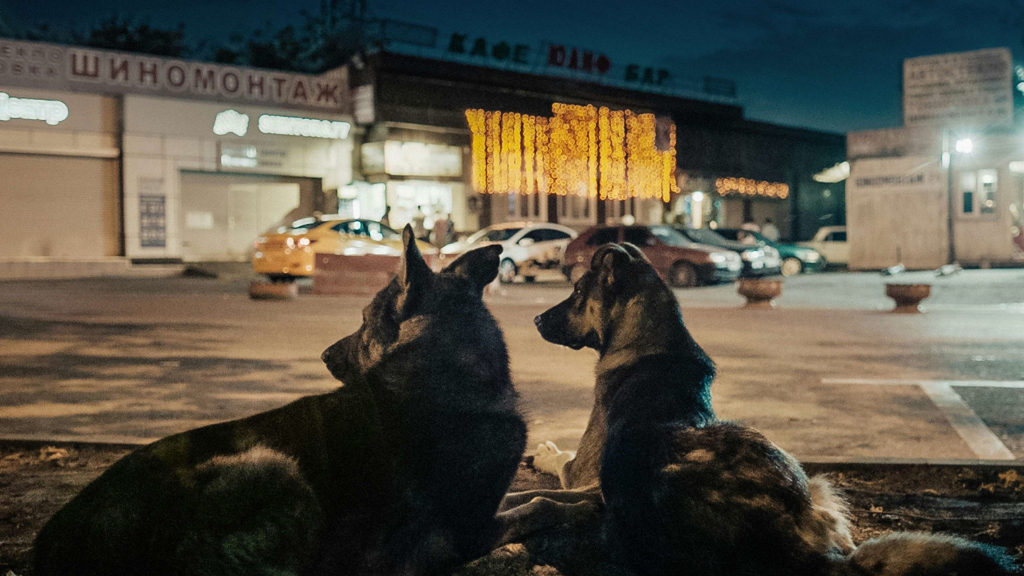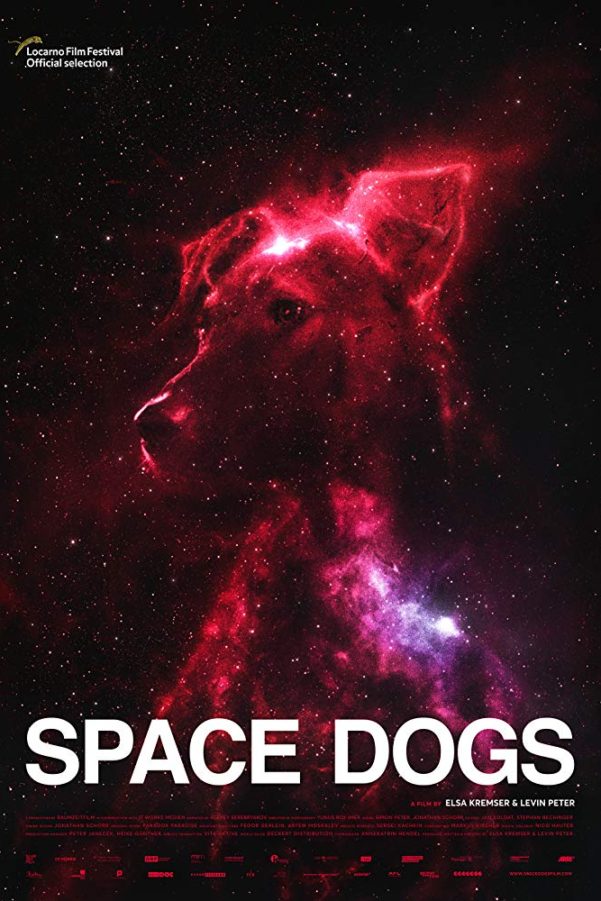Space Dogs

Disclaimer: many animals were harmed during the making of this film.
A tonic – if that’s the right word – for triumphant Apollo 11 retrospectives, Space Dogs is an unforgiving, naturalist study of Muscovite dogs, one constructed within a fabular framework. Two roving hounds – real dogs in real habitats – take on the consciousness and memory of Laika, the first animal sent up by the Soviets to successfully orbit the earth. The undoubted trauma of this past galactic trip manifests itself in the feral atavism and abrupt violence of today.
To be clear: animals hurt and kill one another. The filmmakers don’t intervene for aesthetic and intellectual reasons. Shot mostly at ground level and at dawn with high exposure, footage shows wandering beings in their primal state, uninhibited by human intrusion. The present day is interspersed with archive clips of Soviet testing labs. Violence exists here, too, as scientists make lacerations and give injections to unfortunate pups. The satire of human progress is as purportedly endless as its subject.
A stray mongrel taken from the streets of Moscow, Laika met her end up in the cosmos. This generates an appeal to both the weird and the eerie, and when watching her present incarnations we imbue their attitudes and movements with the feelings and thoughts of a long-deceased canine cosmonaut. It is not as fun as this sounds, although the music enjoyably edges us into harsh disorientation, a complementary strategy to unsettle, producing an unholy marriage with the library images. Alexey Serebryakov mutters ornate poeticisms above it all.
The film hinges on one scene, the sum of which is that a dog attacks and kills a cat. It last several minutes. It is horrific. It is a moral provocation. To apply an ethical lens is perhaps redundant, but the death produces in the viewer a macabre complicity. It would have happened anyway; it is a natural act. But that clarity is transfigured and malformed when incorporated into fiction. Its disputable profundity extends to how we view the rest of the work; that is, in a state of grim anticipation. Everything after is shaded with threat, with fear and foreboding.
A lot recalls Tarkovsky and his obsession with symbolic dogs (or not), and the directors Elsa Kremser and Levin Peter likewise tread the line of metaphor and materiality. They straddle documentary and fiction, desiring the benefits but not the mitigations of each mode. It claims to eschew the anthropocentric gaze while indulging in abstract renderings of mysterious space and exploration. In tandem with the brutal images of death, this produces a deeply discomforting experience. To what end remains unclear.
Joseph Owen
Space Dogs does not have a UK release date yet.
Read more reviews from our Locarno Film Festival 2019 coverage here.
For further information about the event visit the Locarno Film Festival website here.


























Facebook
Twitter
Instagram
YouTube
RSS